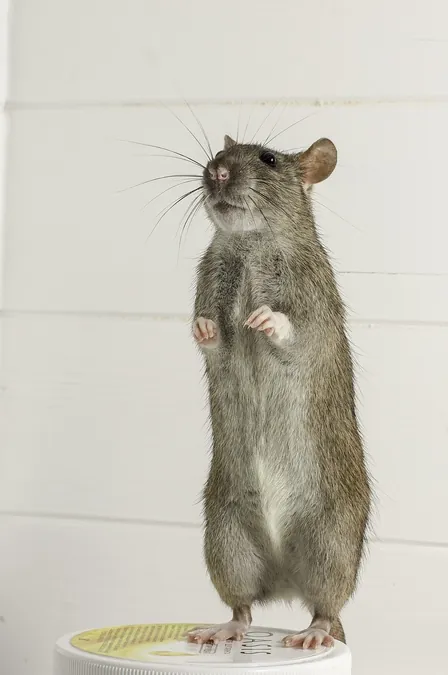
Unbelievable Discovery: Rodents Harness Sound Waves to Boost Smell – Are They Our New Jedi?
2024-10-14
Author: Amelia
Introduction
In a groundbreaking revelation that sounds like the premise of a science fiction movie, recent research suggests that rodents might be using sound to manipulate their environment and enhance their already impressive sense of smell. Since the 1950s, scientists have pondered the significance of ultrasonic vocalizations (USVs) produced by these small creatures, with many believing they were merely a form of social communication or courtship. However, a new study published in the journal Neuroscience & Biobehavioral Reviews introduces a revolutionary perspective that has the scientific community abuzz.
The Research
Eduardo Mercado III, Ph.D., a professor of psychology at the University at Buffalo, proposes that these vocalizations are not simply for flirting or social interaction. Instead, they serve a far more practical purpose: by emitting sounds, rodents may be creating disturbances in their surroundings that impact how smell particles are inhaled. This innovative use of sound could enable them to better identify chemical signals in their environment, akin to "Jedi" mind tricks!
Scientific Perspective
"We're looking at a phenomenon previously unseen, perhaps even unimagined, in the animal kingdom," said Mercado. "By altering the molecular interactions around them, rodents are effectively paving new avenues for sensory information." This finding opens up exciting possibilities for various fields, from treating psychological conditions to advancing technological innovation.
Background of the Study
Mercado's curiosity about the connection between rodent vocalizations and their sniffing behavior arose from his fascination with the songs of humpback whales. During his investigations, he discovered a pattern: rodents tended to sniff right after producing USVs, hinting at a potential functional relationship. His experience in vibroacoustics—a field that studies how sound can manipulate particles—led him to consider that rodents might be utilizing USVs to form odor clusters. This could significantly enhance their ability to detect pheromones, allowing them to discern between friends, foes, and potential mates with greater ease.
Implications and Future Research
The implications of this study are extensive. Rodents, particularly rats and mice, are fundamental to research in various human disorders, including anxiety, depression, schizophrenia, Parkinson's disease, and autism. If Mercado's hypothesis is validated, researchers will have to reevaluate many existing findings from rodent studies, as these creatures could possess sophisticated communication methods that we had previously overlooked.
Conclusion
Jessica Zhou, a student researcher at Harvard University and co-author of the paper, remarked, "Rodents are the unsung heroes in scientific research." Their evolutionary success, driven by their keen sense of smell, may provide deep insights into the cognitive processes that developed over millions of years. This newfound understanding could not only reshape our views on animal communication but also spur the development of innovative technologies—similar to how studies of nocturnal animals inspired the creation of night vision equipment. Mercado passionately notes, "We may be on the brink of discovering how nature has already solved the challenges of sonic manipulation." In a world where science-fiction concepts blend seamlessly with reality, this revelation about rodents might just lead us to rethink our understanding of communication, sensory perception, and even future technologies. Are these "Jedi" rodents paving the way for extraordinary advancements in both science and technology? Only time will tell!









 Brasil (PT)
Brasil (PT)
 Canada (EN)
Canada (EN)
 Chile (ES)
Chile (ES)
 España (ES)
España (ES)
 France (FR)
France (FR)
 Hong Kong (EN)
Hong Kong (EN)
 Italia (IT)
Italia (IT)
 日本 (JA)
日本 (JA)
 Magyarország (HU)
Magyarország (HU)
 Norge (NO)
Norge (NO)
 Polska (PL)
Polska (PL)
 Schweiz (DE)
Schweiz (DE)
 Singapore (EN)
Singapore (EN)
 Sverige (SV)
Sverige (SV)
 Suomi (FI)
Suomi (FI)
 Türkiye (TR)
Türkiye (TR)